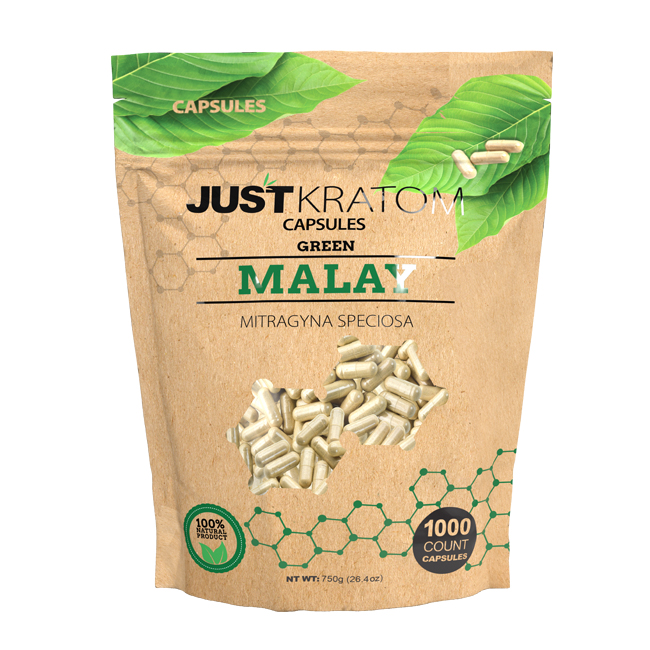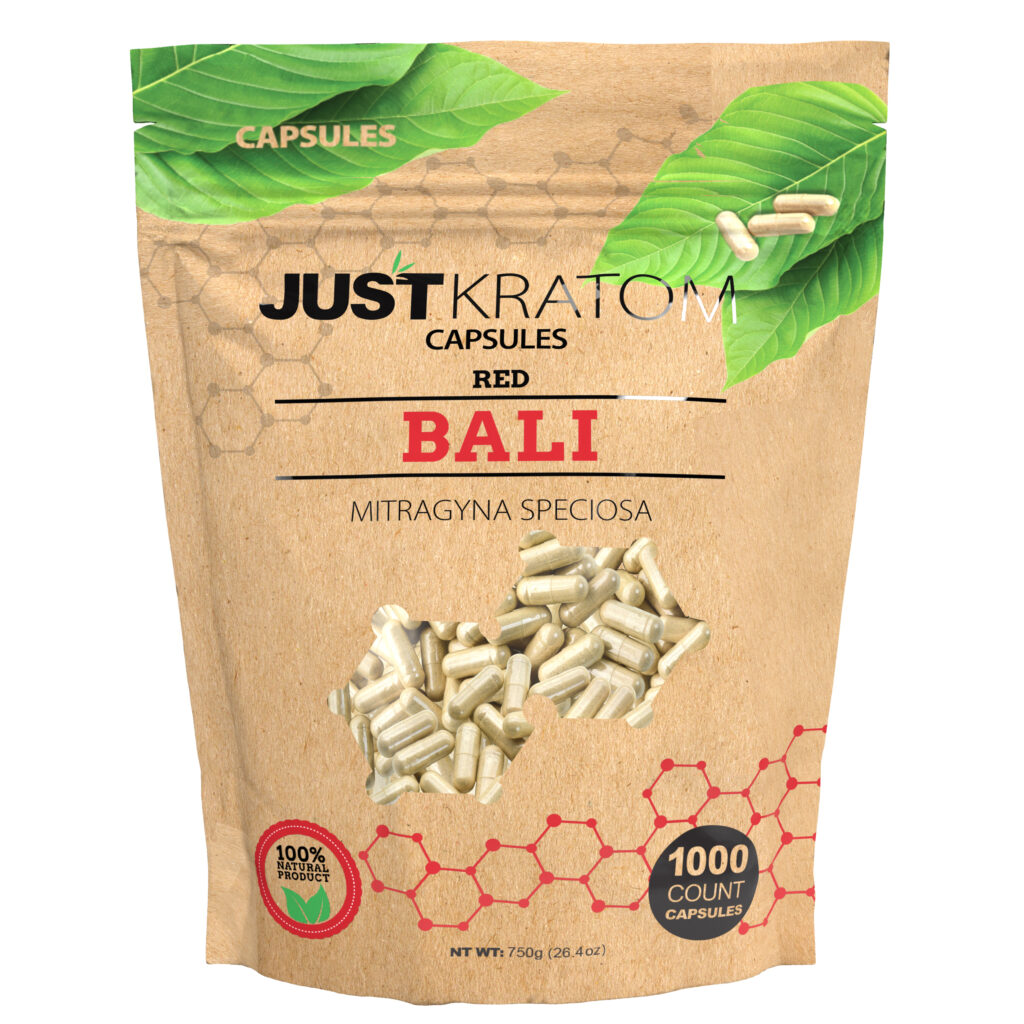Potential Risks of Long-Term Kratom Use
While kratom has gained popularity as a natural remedy for pain and other ailments, there are potential risks associated with long-term use that should be carefully considered.
Cardiovascular Effects
One significant concern regarding long-term kratom use is its impact on the cardiovascular system. Kratom contains alkaloids that can affect heart rate and blood pressure. Studies have shown that kratom can increase heart rate and potentially elevate blood pressure, which may pose risks for individuals with pre-existing cardiovascular conditions.
Furthermore, there are concerns about potential long-term effects on the heart muscle itself.
Liver Damage
One of the most serious potential risks of long-term kratom use is liver damage. Kratom can cause liver toxicity, even in relatively low doses and with short-term use. This risk increases significantly with prolonged use or high doses.
It’s important to note that while some people may use kratom for years without experiencing liver problems, others may develop serious liver damage relatively quickly.
Addiction and Dependence
While kratom has gained popularity as a natural remedy for pain and other ailments, there are potential risks associated with long-term use that should be carefully considered.
One significant concern regarding long-term kratom use is its impact on the cardiovascular system. Kratom contains alkaloids that can affect heart rate and blood pressure. Studies have shown that kratom can increase heart rate and potentially elevate blood pressure, which may pose risks for individuals with pre-existing cardiovascular conditions.
Furthermore, there are concerns about potential long-term effects on the heart muscle itself.
One of the most serious potential risks of long-term kratom use is liver damage. Kratom can cause liver toxicity, even in relatively low doses and with short-term use. This risk increases significantly with prolonged use or high doses.
It’s important to note that while some people may use kratom for years without experiencing liver problems, others may develop serious liver damage relatively quickly.
- Addiction and Dependence: Kratom can be addictive, and prolonged use may lead to dependence. Users may experience withdrawal symptoms like nausea, muscle aches, and anxiety when they try to quit.
- Tolerance: Over time, users may develop a tolerance to kratom’s effects, requiring higher doses to achieve the same results. This can increase the risk of adverse effects and potential overdose.
- Drug Interactions: Kratom can interact with other medications, including antidepressants, opioids, and stimulants. These interactions can have unpredictable and potentially dangerous consequences.
Withdrawal Symptoms
One of the most serious potential risks of long-term kratom use is liver damage. Kratom can cause liver toxicity, even in relatively low doses and with short-term use. This risk increases significantly with prolonged use or high doses.
It’s important to note that while some people may use kratom for years without experiencing liver problems, others may develop serious liver damage relatively quickly.
- Addiction and Dependence: Kratom can be addictive, and prolonged use may lead to dependence. Users may experience withdrawal symptoms like nausea, muscle aches, and anxiety when they try to quit.
- Tolerance: Over time, users may develop a tolerance to kratom’s effects, requiring higher doses to achieve the same results. This can increase the risk of adverse effects and potential overdose.
- Drug Interactions: Kratom can interact with other medications, including antidepressants, opioids, and stimulants. These interactions can have unpredictable and potentially dangerous consequences.
Interactions with Other Medications
One significant concern regarding long-term kratom use is its impact on the cardiovascular system. Kratom contains alkaloids that can affect heart rate and blood pressure. Studies have shown that kratom can increase heart rate and potentially elevate blood pressure, which may pose risks for individuals with pre-existing cardiovascular conditions.
Furthermore, there are concerns about potential long-term effects on the heart muscle itself.
One of the most serious potential risks of long-term kratom use is liver damage. Kratom can cause liver toxicity, even in relatively low doses and with short-term use. This risk increases significantly with prolonged use or high doses.
It’s important to note that while some people may use kratom for years without experiencing liver problems, others may develop serious liver damage relatively quickly.
- Addiction and Dependence: Kratom can be addictive, and prolonged use may lead to dependence. Users may experience withdrawal symptoms like nausea, muscle aches, and anxiety when they try to quit.
- Tolerance: Over time, users may develop a tolerance to kratom’s effects, requiring higher doses to achieve the same results. This can increase the risk of adverse effects and potential overdose.
- Drug Interactions: Kratom can interact with other medications, including antidepressants, opioids, and stimulants. These interactions can have unpredictable and potentially dangerous consequences.
Factors Influencing Safety
Safety considerations are paramount when evaluating the long-term use of any substance, and kratom is no exception. Various factors influence the potential risks associated with prolonged kratom consumption.
Dosage
One crucial factor is individual physiology and health conditions. People with pre-existing cardiovascular issues, liver disease, or other medical ailments may be more susceptible to adverse effects from kratom.
Dosage also plays a significant role in determining safety. Higher doses generally increase the risk of side effects and potential complications.
The frequency and duration of kratom use are also important considerations. Occasional, short-term use may pose less risk compared to daily or long-term consumption.
The purity and source of kratom can vary widely. Impurities or adulterants in kratom products can introduce additional risks.
It’s essential to consult with a healthcare professional before using kratom, especially for long-term use.
Frequency of Use
Safety considerations are paramount when evaluating the long-term use of any substance, and kratom is no exception. Various factors influence the potential risks associated with prolonged kratom consumption.
One crucial factor is individual physiology and health conditions. People with pre-existing cardiovascular issues, liver disease, or other medical ailments may be more susceptible to adverse effects from kratom.
Dosage also plays a significant role in determining safety. Higher doses generally increase the risk of side effects and potential complications.
The frequency and duration of kratom use are also important considerations. Occasional, short-term use may pose less risk compared to daily or long-term consumption.
The purity and source of kratom can vary widely. Impurities or adulterants in kratom products can introduce additional risks.
It’s essential to consult with a healthcare professional before using kratom, especially for long-term use.
Purity of Kratom Products
Safety considerations are paramount when evaluating the long-term use of any substance, and kratom is no exception. Various factors influence the potential risks associated with prolonged kratom consumption.
One crucial factor is individual physiology and health conditions. People with pre-existing cardiovascular issues, liver disease, or other medical ailments may be more susceptible to adverse effects from kratom.
Dosage also plays a significant role in determining safety. Higher doses generally increase the risk of side effects and potential complications.
The frequency and duration of kratom use are also important considerations. Occasional, short-term use may pose less risk compared to daily or long-term consumption.
The purity and source of kratom can vary widely. Impurities or adulterants in kratom products can introduce additional risks.
It’s essential to consult with a healthcare professional before using kratom, especially for long-term use.
Individual Health Conditions
Safety considerations are paramount when evaluating the long-term use of any substance, and kratom is no exception. Various factors influence the potential risks associated with prolonged kratom consumption.
One crucial factor is individual physiology and health conditions. People with pre-existing cardiovascular issues, liver disease, or other medical ailments may be more susceptible to adverse effects from kratom.
Dosage also plays a significant role in determining safety. Higher doses generally increase the risk of side effects and potential complications. The frequency and duration of kratom use are also important considerations. Occasional, short-term use may pose less risk compared to daily or long-term consumption.
- Cardiovascular Health: Individuals with existing heart conditions or high blood pressure should exercise extreme caution when considering kratom use.
- Liver Function: Kratom’s potential for liver toxicity is a serious concern, especially for those with pre-existing liver disease.
- Other Medical Conditions: Kratom may interact with certain medications or exacerbate existing medical conditions. Consultation with a healthcare professional is crucial.

The purity and source of kratom can vary widely. Impurities or adulterants in kratom products can introduce additional risks. It’s essential to consult with a healthcare professional before using kratom, especially for long-term use.
Genetics
Safety considerations are paramount when evaluating the long-term use of any substance, and kratom is no exception. Various factors influence the potential risks associated with prolonged kratom consumption.
One crucial factor is individual physiology and health conditions. People with pre-existing cardiovascular issues, liver disease, or other medical ailments may be more susceptible to adverse effects from kratom. Dosage also plays a significant role in determining safety. Higher doses generally increase the risk of side effects and potential complications. The frequency and duration of kratom use are also important considerations. Occasional, short-term use may pose less risk compared to daily or long-term consumption.
The purity and source of kratom can vary widely. Impurities or adulterants in kratom products can introduce additional risks. It’s essential to consult with a healthcare professional before using kratom, especially for long-term use.
Genetics play a role in how individuals respond to substances like kratom. Some people may be genetically predisposed to metabolize kratom more slowly or experience stronger effects, increasing their risk of adverse reactions.
Research on the specific genetic factors influencing kratom metabolism and response is still ongoing, but understanding individual genetic variations could contribute to personalized recommendations for safe kratom use.
Long-Term Studies and Research Gaps
Long-term studies on kratom are limited, leaving significant research gaps in our understanding of its potential long-term effects. This lack of comprehensive research makes it difficult to definitively assess the risks associated with prolonged kratom use.
Limited Data on Chronic Effects
Safety considerations are paramount when evaluating the long-term use of any substance, and kratom is no exception. Various factors influence the potential risks associated with prolonged kratom consumption.
One crucial factor is individual physiology and health conditions. People with pre-existing cardiovascular issues, liver disease, or other medical ailments may be more susceptible to adverse effects from kratom.
Dosage also plays a significant role in determining safety. Higher doses generally increase the risk of side effects and potential complications. The frequency and duration of kratom use are also important considerations. Occasional, short-term use may pose less risk compared to daily or long-term consumption.

The purity and source of kratom can vary widely. Impurities or adulterants in kratom products can introduce additional risks. It’s essential to consult with a healthcare professional before using kratom, especially for long-term use.
Genetics play a role in how individuals respond to substances like kratom. Some people may be genetically predisposed to metabolize kratom more slowly or experience stronger effects, increasing their risk of adverse reactions.
Research on the specific genetic factors influencing kratom metabolism and response is still ongoing, but understanding individual genetic variations could contribute to personalized recommendations for safe kratom use.
- Long-Term Effects: Limited long-term studies make it difficult to fully assess the potential chronic effects of kratom consumption on various organ systems.
- Cardiovascular Impact: More research is needed to understand the long-term impact of kratom on heart health, particularly in individuals with pre-existing cardiovascular conditions.
- Liver Toxicity: While kratom’s potential for liver toxicity is known, further research is needed to determine the extent and duration of potential damage and individual risk factors.
Need for Further Research
Long-term studies on kratom are limited, leaving significant research gaps in our understanding of its potential long-term effects. This lack of comprehensive research makes it difficult to definitively assess the risks associated with prolonged kratom use.
Several key research areas require further investigation to provide a clearer picture of kratom’s long-term impact:
- Long-Term Effects: Limited long-term studies make it difficult to fully assess the potential chronic effects of kratom consumption on various organ systems.
- Cardiovascular Impact: More research is needed to understand the long-term impact of kratom on heart health, particularly in individuals with pre-existing cardiovascular conditions.
- Liver Toxicity: While kratom’s potential for liver toxicity is known, further research is needed to determine the extent and duration of potential damage and individual risk factors.
Addressing these research gaps is crucial for developing informed guidelines and recommendations regarding the safe use of kratom.
Recommendations for Safe Use
Long-term studies on kratom are limited, leaving significant research gaps in our understanding of its potential long-term effects. This lack of comprehensive research makes it difficult to definitively assess the risks associated with prolonged kratom use.
Several key research areas require further investigation to provide a clearer picture of kratom’s long-term impact:
- Long-Term Effects: Limited long-term studies make it difficult to fully assess the potential chronic effects of kratom consumption on various organ systems.
- Cardiovascular Impact: More research is needed to understand the long-term impact of kratom on heart health, particularly in individuals with pre-existing cardiovascular conditions.
- Liver Toxicity: While kratom’s potential for liver toxicity is known, further research is needed to determine the extent and duration of potential damage and individual risk factors.
Addressing these research gaps is crucial for developing informed guidelines and recommendations regarding the safe use of kratom.
Start with Low Dosages and Gradually Increase
Recommendations for safe use of kratom include starting with low dosages and gradually increasing the amount as needed. It’s important to listen to your body and stop using kratom if you experience any adverse effects. Consulting with a healthcare professional before using kratom, especially for long-term use, is crucial to assess potential risks and benefits based on individual health conditions.
Listen to Your Body and Avoid Overuse
Recommendations for safe use of kratom include starting with low dosages and gradually increasing the amount as needed. It’s important to listen to your body and stop using kratom if you experience any adverse effects.
Consulting with a healthcare professional before using kratom, especially for long-term use, is crucial to assess potential risks and benefits based on individual health conditions.
Avoid overuse as this can increase the risk of side effects and dependence. Be aware that kratom can interact with other medications, so it’s essential to inform your doctor about all substances you are taking.
Choose Reputable Suppliers and Products
Choosing reputable suppliers and products is paramount when considering kratom use. Look for vendors who:
- Provide third-party lab testing results that verify the purity and potency of their products. These tests should be readily available upon request.
- Source their kratom from sustainable and ethical farms, ensuring responsible harvesting practices.
- Offer clear and transparent information about their sourcing, manufacturing processes, and product contents.
- Have a good reputation within the kratom community and positive customer reviews.
Remember, purchasing kratom from unreliable sources can expose you to adulterants, contaminants, or mislabeled products, potentially increasing your risk of adverse effects. Prioritizing reputable suppliers is essential for maximizing safety and minimizing potential harm.
Consult a Healthcare Professional Before Using Kratom
Recommendations for Safe Use:
- Consult a Healthcare Professional: Before using kratom, especially for long-term use, it’s crucial to consult with a healthcare professional. They can assess your individual health conditions, potential risks, and advise on appropriate dosage and usage.
- Start Low and Go Slow: Begin with a low dose of kratom and gradually increase it as needed while carefully monitoring for any adverse effects.
- Listen to Your Body: Pay attention to how your body responds to kratom. If you experience any negative side effects, discontinue use and consult with your doctor.
- Avoid Overuse: Kratom can be habit-forming. Avoid overuse as it can lead to dependence and increase the risk of side effects.
- Be Aware of Interactions: Kratom can interact with other medications, including antidepressants, opioids, and stimulants. Inform your doctor about all substances you are taking to avoid potential harmful interactions.
- Choose Reputable Suppliers: Purchase kratom from reputable suppliers who provide third-party lab testing results verifying the purity and potency of their products. Look for vendors who prioritize ethical sourcing and transparent practices.
Order Kratom capsules for improved energy
- Downturned Smile Treatment Near Outwood, Surrey - September 28, 2025
- Is It Safe To Take Kratom Capsules Long-Term? - September 27, 2025
- Dermal Fillers Near Blackheath, Surrey - September 27, 2025
